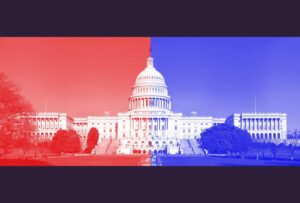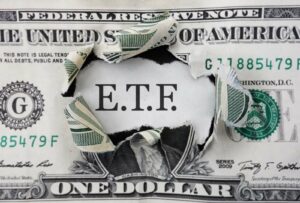FinePrint Co-Founder Marvin Barron joined Andrew Weekly of SmithWeekly for their June 10th podcast. SmithWeekly is an investment newsletter and research firm that focuses on natural resource investing.
Key excerpts:
[10:02]
One of the very robust findings from development economics and political economics is that more transparent governments – better run governments – governments where there’s more accountability – have different spending priorities than ones that don’t.
[10:11]
One of the more interesting things is the degree to which different countries have taken very different lines in how they want their politicians to be involved in the economy. In most of the Asian countries the idea that you could profit from your stocks and, at the same time, [be] a public servant: that’s not really okay in Singapore. The US has said that we should treat our legislators more like private citizens, and there’s an argument to be made there: in the sense that it’s great if your holdings improve at the same time that your constituents’ lives improve. What we’re really concerned about, however, are the edge cases where legislators are invested in places [where] the success doesn’t line up with the success of their area or their constituency, [for example,] if they’re shorting the market if they’re investing in competitors of local employers.
[13:08]
We’re about to enter into the largest restructuring of the economy by the government…in the post-war period. So just knowing that your politicians are sitting on the same side of the table as you — we think is valuable.
[16:45]
We have a lot of tools for dealing with that [insider trading] conflict of interest in the private sector: pre-clearance of trades…freezing out trading windows after receiving of sensitive information[, etc.]: none of those tools have been put into place [for public servants] and I think …by shining a light on the activity [we can create] more pressure to get more transparency…so the system functions better overall.
[19:54]
“We can build a sentiment analysis that covers larger trend moves”
[20:43]
Our big goal here is to be…the canary in the coalmine. We pay attention to the longer-term trends, because in general legislators tend to be fairly risk-averse. They tend to have fairly low turnover strategies, so when…individual legislators who… have done very little trading for a long period of time suddenly do 15 trades in a month — even if we’re getting that data 30 days later — that’s significant.
If legislators who have traditionally not traded individual stocks — [if] all the members of the Energy Committee start trading individual stocks when they’ve mostly been buy and hold mutual fund buyers — there’s information in that behavioral change separate from information about what’s going on with any of the individual stocks. We think that trend analysis is…going to have more wisdom to it over time.
[44:37]
[There is an idea that] capitalism and democracy is like peanut butter and chocolate. They go together automatically perfectly and create something greater than the sum of their parts. And we don’t even have to do much work to have that happen… That…assumption (that these systems go together perfectly and nobody needs to pay attention to the gearing between them) — that assumption is coming under…heavy questioning. I am a firm believer in both systems but I don’t think that they work together automatically with nobody watching / nobody paying attention.
One of the tenets that makes capitalism work is some degree of equal information access for all the people who are playing the game. If that assumption gets violated then the models start to fall apart…quickly.
[What] makes capitalism work is…that there’s competition among the players. If that competition isn’t fair — if somebody’s getting a boost through the legislative process[, or] the regulatory process, over their competitors — then all of the models [about] capitalism lead[ing] to higher productivity…innovation…standards of [living]….growth for everybody fall apart.
Somebody has to be paying attention to [the intersection between capitalism and democracy] and if nobody is doing that then it’s…our own fault if…the models [fail]. [There is] a level of pride that the systems work with nobody paying attention to them. I don’t have an expectation that my car is going to run forever if I don’t change the oil, [etc.], but we’ve made that assumption about the two biggest, most complicated systems we’ve created in…history. I think we need to walk that assumption back a little bit.





